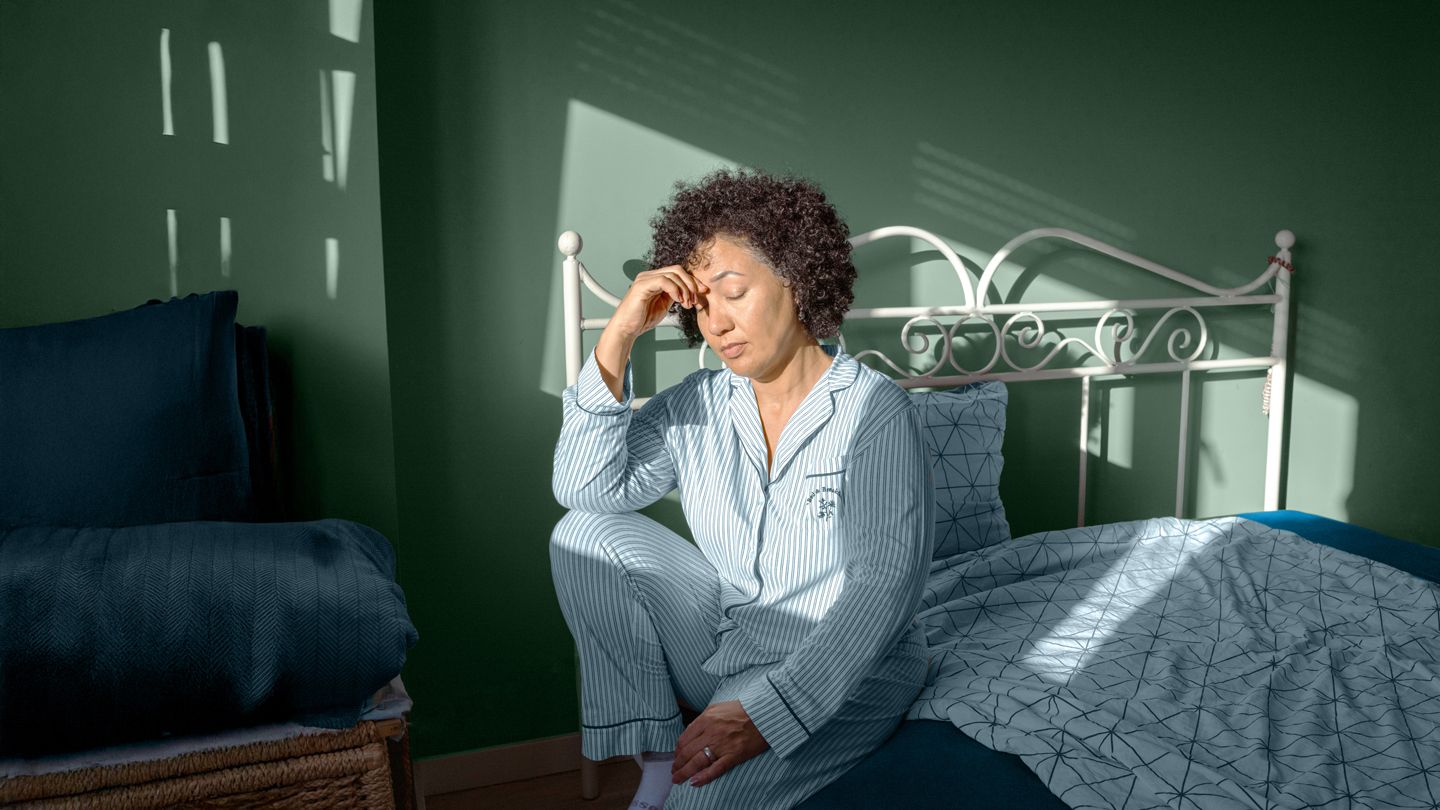These are the lifestyle changes Rosser recommends to her menopausal patients.
Eat a Well-Balanced Diet
- Tryptophan is an amino acid the body uses to make serotonin, a chemical messenger that helps regulate sleep. Foods like cheese, nuts, and turkey are high in tryptophan, which is why sleepiness often follows Thanksgiving dinner.
- Glycine, another amino acid, calms the nervous system and promotes deeper sleep. It’s found in meat, cheese, fish, dairy products, and vegetables.
- Resveratrol is a phytoestrogen — a plant-based compound in grapes and wine that mimics the effects of estrogen in the body. It may help with hot flashes.
- Isoflavones from foods like soybeans, peas, lentils, and peanuts, also have estrogen-like effects that might help with sleep.
- Vitamin E, found in nuts, seeds, and fruits like avocados and mangoes, may improve sleep quality.
- Iron and folate from leafy greens and beans can help decrease restless leg syndrome, a common cause of insomnia in women.
While eating more healthy foods, try to cut back on unhealthy ones, especially those high in sugar. Taming your sweet tooth can be harder to do when you’re not sleeping well. “When people are sleep-deprived, they tend to crave carbs or simple sugars, and that leads to diabetes and weight gain,” Rosser says.
Stay Active
Starting an exercise routine can be daunting, especially for busy women. “When people are told to exercise, they think it’s going to classes that take an hour or driving to the gym,” says Rosser. She recommends starting with “bite-sized” amounts of exercise to make it more manageable. Run in place while watching TV or dance around the house for 10 minutes. Just don’t exercise too close to bedtime, she cautions. That could make it harder to fall asleep.
Practice Good Sleep Hygiene Habits
- Get into a sleep routine. Try to go to bed and wake up at the same time each day.
- Do something relaxing before bed: read a book, listen to calming music, take a warm bath or have a mug of warm milk.
- Keep your bedroom dark, quiet, and cool. Experts say the optimal temperature for sleep is between 65 and 68 degrees F. Rosser suggests wearing moisture-wicking pajamas and outfitting the bed with cooling sheets, pillows, and mattress pads to ease night sweats.
- Turn off phones, computers, and other screens at least 30 minutes before bedtime.
- Don’t eat too close to bedtime, especially heavy meals.
- Avoid nicotine products like cigarettes and vapes, as well as caffeine. These substances stimulate the brain and make it harder to sleep.
- Stop drinking alcohol four to six hours before bedtime. It can disrupt sleep.
Try Alternative Therapies
A few natural treatments also have shown promise for improving sleep during menopause.
Supplements A few natural remedies have shown promise for treating sleep issues in menopause:
- Melatonin is a hormone that regulates the body’s sleep-wake cycles. A drop in melatonin could contribute to sleep problems during menopause. Replacing it with a supplement might improve sleep quality, although it doesn’t work for everyone. “Some women swear by it. Others have bad dreams or it doesn’t work,” says Rosser.
- Magnesium is an essential mineral found in foods like leafy greens, nuts, whole grains, and dairy products. It’s thought to promote sleep by calming the nervous system. Some women find that taking magnesium helps them sleep better, says Rosser.
- Black cohosh is a medicinal plant that is well-known for easing menopausal symptoms like hot flashes and night sweats. Some menopausal women find that it helps them sleep longer and more deeply.
Tend to Your Mental Health
When choosing from these insomnia treatments, remember that everyone responds differently. “Just like with anything in life, perimenopause and menopause are unique experiences,” explains Rosser. “We have to individualize and tailor care. What works for one person may not work for another.”
Read the full article here




